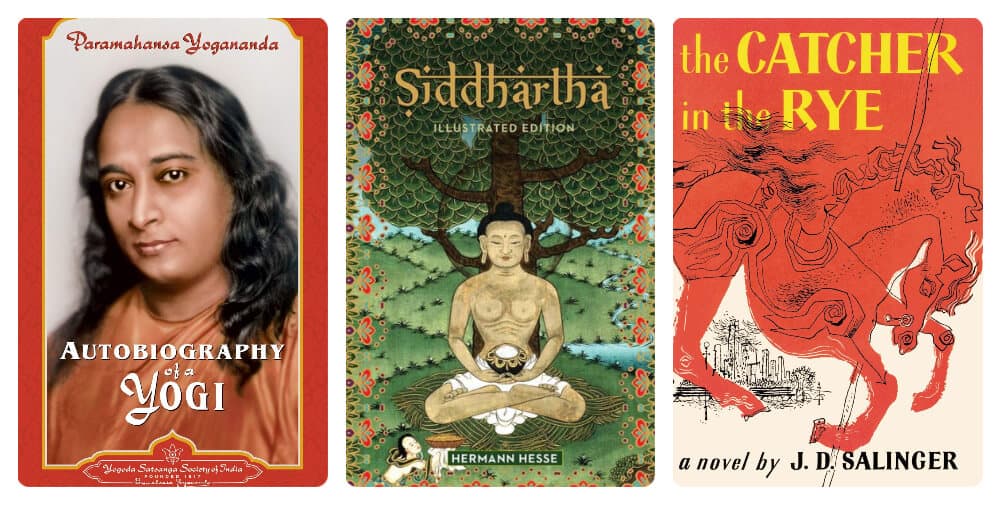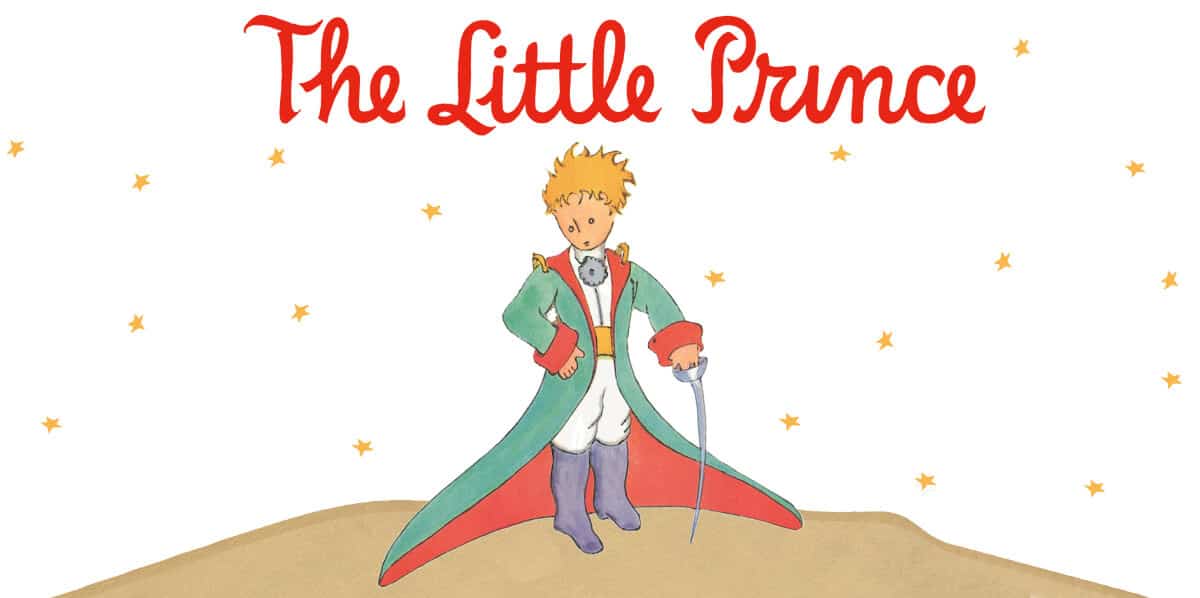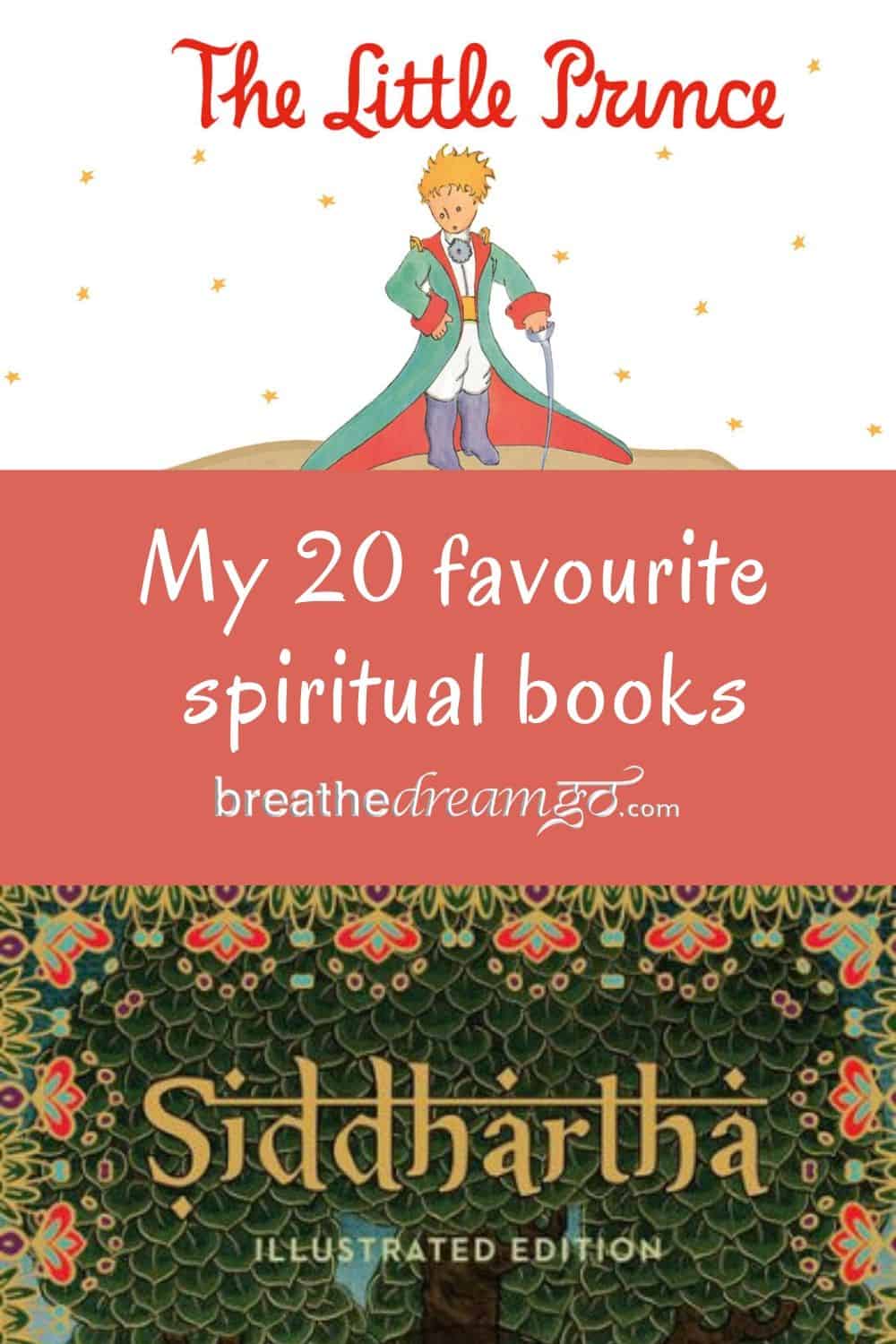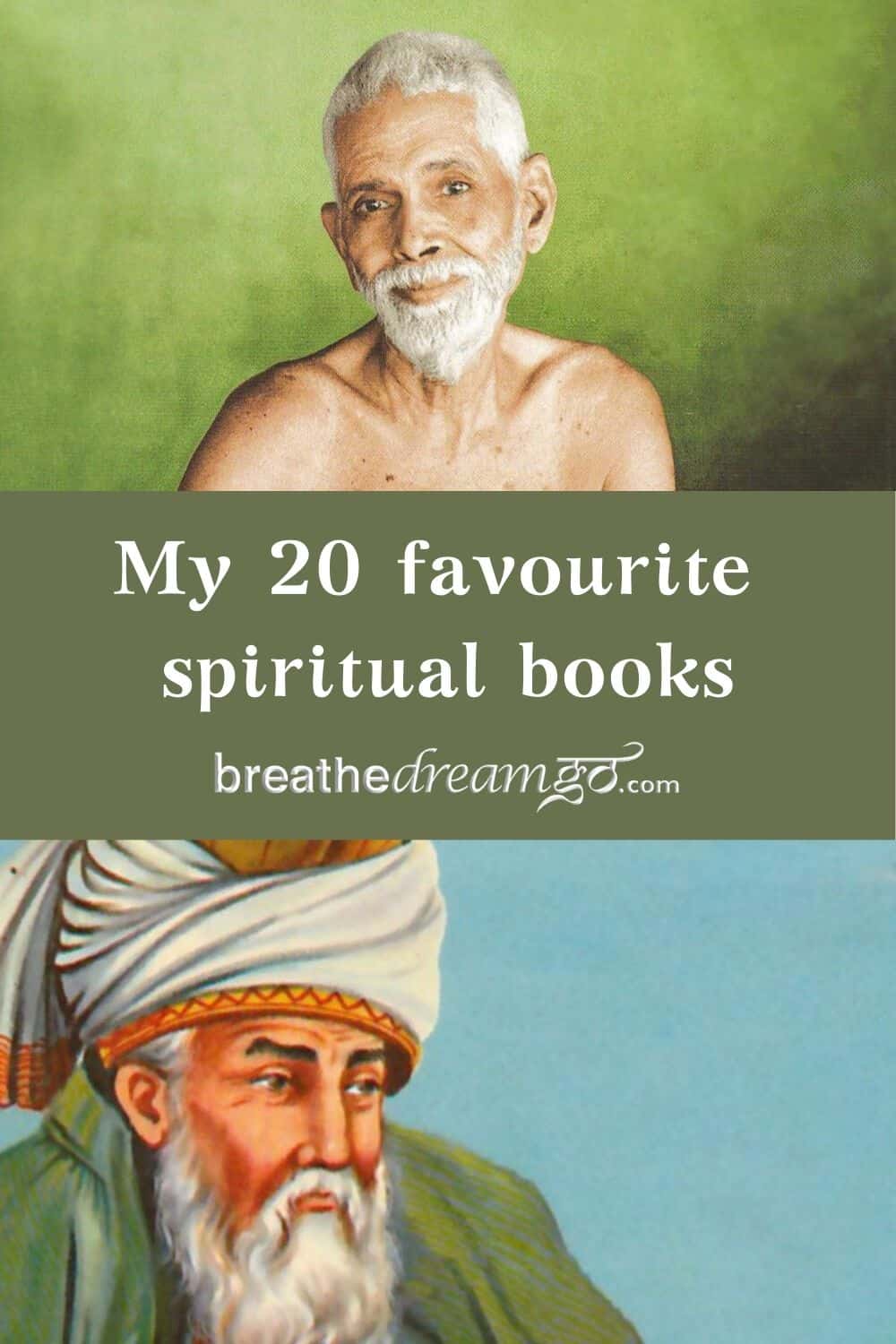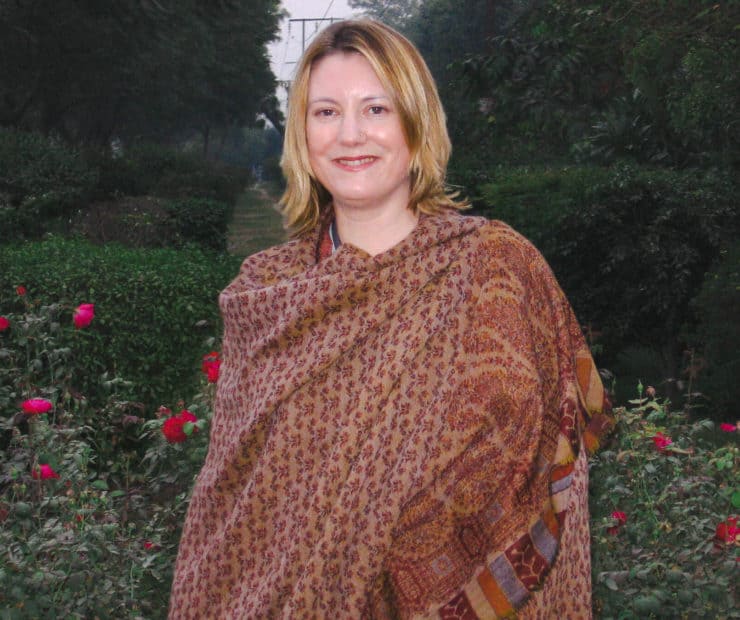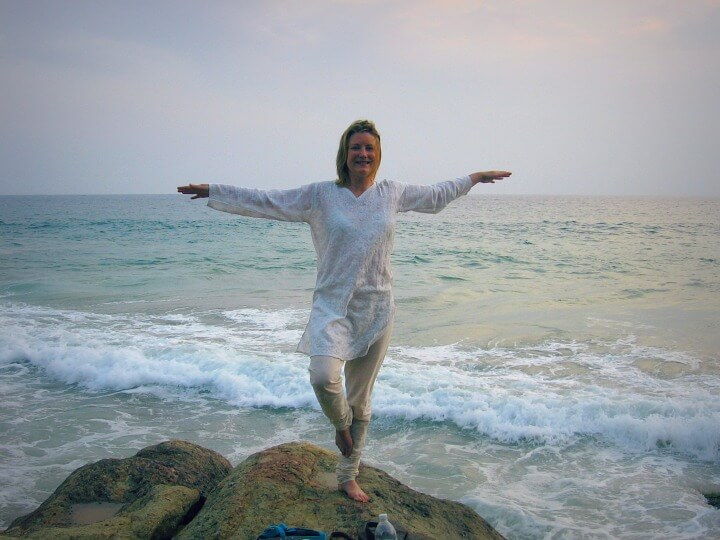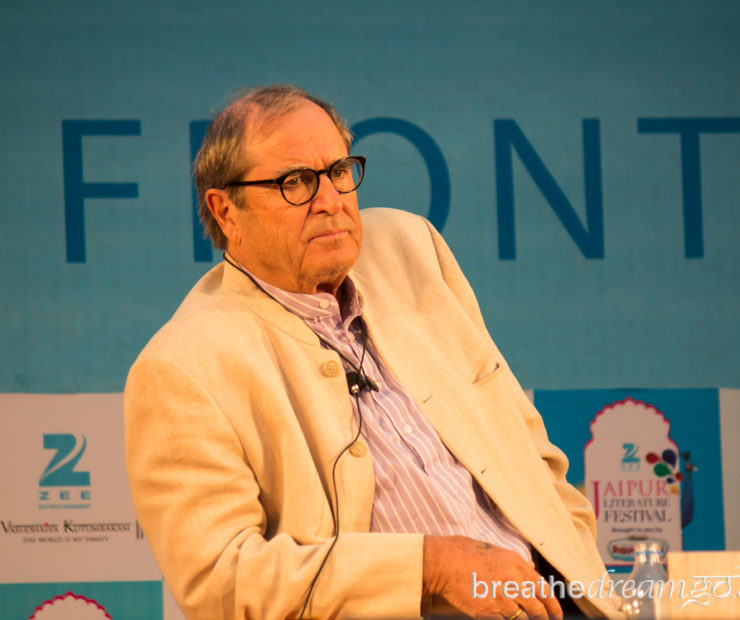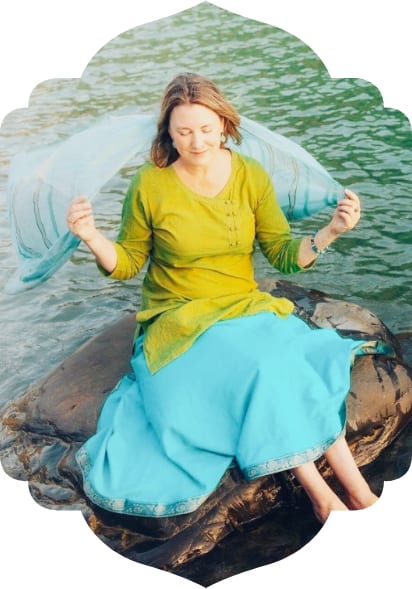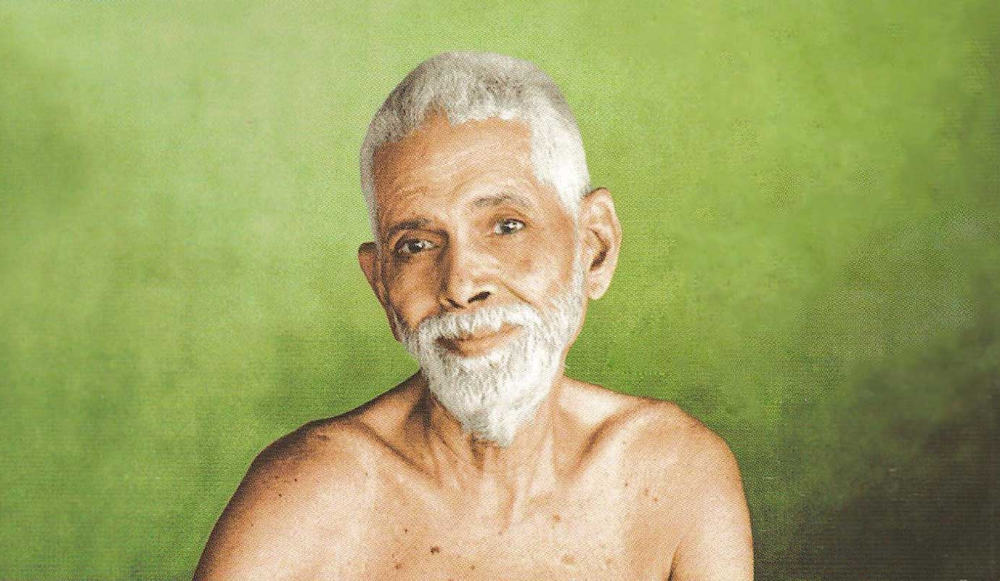
20 favourite spiritual books about India, Yoga, wellness, and life …
SPIRITUAL BOOKS ARE coming back into fashion. People are looking for answers, they are looking within, and they are reaching beyond their usual boundaries. Seekers, of course, have always been interested in spiritual pursuits, and reading spiritual books, and the popularity of Yoga has also given rise to more interest in the spiritual side of life. Needless to say, there are a lot of Indian spiritual books.
My list of favourites is skewed towards books from India and generally the spiritual wisdom of the east — because that’s what resonates with me. I know there are a lot of popular books in the west, and books from other traditions and faiths, that are equally inspiring and illuminating, no doubt. But for as long as I can remember, even in childhood while I was growing up in the Catholic faith, I have been drawn to the eastern traditions, world views, and philosophies. It’s one of the reasons I went to India in the first place, back in 2005 — to study Yoga and deal with a depression and an existential crisis brought on by the sudden and, to me, traumatic, death of my Mother. So, yes, I’ve read a lot of Indian spiritual books.
Seekers read spiritual books
The mass popularity of Eat, Pray, Love seems to suggest that author Elizabeth Gilbert was the first seeker ever to brave the rigours of travel in India in order to discover inner bliss at a spiritual retreat. To set the record straight, spiritual seekers have been going to India for many generations, perhaps many centuries. There is speculation that Jesus trained as a yogi in India – and that’s where he learned to perform “miracles,” otherwise known as Siddhi or Yogic powers.
Mark Twain went to India in the 19th century. A Search in Secret India by Dr. Paul Brunton was published in 1935. Somerset Maugham’s masterpiece A Razor’s Edge is about a man who goes to India just after WW1.The Beatles went to India in 1968. Even Steve Jobs of Apple went to India — and came back with a fresh perspective that enabled him to revolutionize computing. (Full disclosure: I have been a devoted Apple user since about 1987, when I bought the second computer the company made, the Mac Classic.)
Personally, I think spirituality is the most private and personal aspect of human life — even more than sex and salary. So, I would never presume to make a list of spiritual books without qualifying the criteria: Here are 20 of the most spiritually influential books to me. In other words, it’s a very personal and idiosyncratic list, in no discernible order. Likewise, my list of top spiritual places in India you must visit.
1. The Power of Myth by Joseph Campbell. I think of Campbell as my teacher, though I never met him. I’m not sure anyone’s ideas have influenced me more. He made me see the world as one extremely creative and vital organism, exhibiting itself in an astounding array of religious, mythological and cultural manifestations. This book is also a series, produced by PBS with journalist Bill Moyers. It’s widely available and a great place to start to get to know the work of Joseph Campbell. His seminal book Hero With a Thousand Faces is a classic.
2. The Razor’s Edge by Somerset Maugham. Maugham is probably my favourite writer. His elegant style and piercing insight can’t be beat. And he was way ahead of his time in his depiction of a young man, Larry Darell, who goes to India to seek the truth and become good, after surviving WWI as a soldier. The Indian guru Darell meets is never named in the book, but is known to be Sri Ramana Maharshi. In fact, Maugham was inspired to travel to India to meet Sri Ramana Maharshi after his friend Paul Brunton, author of A Search in Secret India (#10 below) told him about the revered saint. That trip gave rise to The Razor’s Edge.
3. Catcher in the Rye by JD Salinger. For generations, this book has been beloved by rebellious teenagers who feel like misfits and don’t know how to adjust to a dysfunctional society. Part bible, part anthem, and part life raft, Catcher in the Rye spoke to their unnamed feelings and restless spirits. Holden Caulfield is the antihero who questions authority, has a bat-like radar for bullshit, and is alone in his grief over his brother’s death. He is a seeker of sorts, who sees through the hypocrisy of society, and demands more.
4. Rumi. Sufi poet Jalal al-Din Mohammad Rumi was born in 1207, into the Muslim faith, and is today one of the world’s best known poets. His mystical poetry, written in his native Persian and translated, is popular the world over, and used in untold memes, greeting cards, book covers and more. The poetry of Rumi seems to me to express truths that I cannot believe he was able to capture. In The Tavern he writes about how “someone brought me here, they have to take me home” as a metaphor for god. There are many books of Rumi poetry, I am particularly fond of the Coleman Barks’ translations.
Your task is not to seek for love, but merely to seek and find all the barriers within yourself that you have built against it.” – Rumi
5. Autobiography of a Yogi by Paramahansa Yogananda. Anything is possible, open your mind. That’s my quick take on a long and involving book. I have read it about three times, and every time it takes me on an amazing journey across India, into the world of advanced Yoga masters with mind-bending powers. Both accessible and esoteric, there is no other book quite like Autobiography of a Yogi and I highly recommend it. If nothing else, you will be highly entertained. PS Apparently George Harrison always carried copies to give out, and Steve Jobs arranged to give a copy to everyone at his memorial service.
6. Man’s Search for Meaning by Victor E. Frankl. A slim volume that has sold in the millions, Austrian psychiatrist Frankl relates how he was able to survive the Auschwitz death camp during WWII by focusing on the meaning of his life, the purpose. In this book, he extrapolates what he learned for the benefit of others, who may not be in such an intense life-and-death situation, but who nevertheless face existential anguish. “In working as a psychiatrist to the inmates, Frankl found that the single most important factor in cultivating the kind of ‘inner hold’ that allowed men to survive was teaching them to hold in the mind’s grip some future goal. He cites Nietzsche, who wrote that, ‘He who has a why to live for can bear with almost any how.'” Excerpt from Brain Pickings.
Everything can be taken from a man but one thing: the last of the human freedoms — to choose one’s attitude in any given set of circumstances, to choose one’s own way.” – Viktor Frankl
7. The Little Prince by Antoine de Saint-Exupéry. Both a simple children’s book and a profound allegory, The Little Prince is about a young prince from a far off land who comes to earth on a heartfelt mission. Throughout the charming story, truths are dropped like tiny bombs that explode harmlessly in the hands of children but can be soul-shaking to adults.
8. The Bhagavad Gita. The Gita is a slim book that depicts just one scene from the sprawling Indian epic The Mahabharat. The warrior prince Arjun of the Pandavas is at the head of an army, about to go into battle against his cousins, and he’s paralyzed by indecision about whether he should lead this battle against his kin. His charioteer is the god Krishna, who counsels him on dharma — sacred duty. This slim volume is considered the “bible” to Hindus, and contains the most important philosophies of Hinduism and also of Yoga.
9. Nine Lives by William Dalrymple. A masterpiece. I was already a big Dalrymple fan — his wonderful book City of Djinns, about Delhi, is on my list of Best books about India — but this book escalates him to a new level as far as I am concerned. The book profiles nine different people Dalrymple has met on his extensive travels in India. All of the unique characters in the book are involved in some arcane spiritual practise and the enormous research Dalrymple did to flesh out the stories and give the reader background and context makes for fascinating and informative reading.
10. A Search in Secret India by Dr. Paul Brunton. A cult classic, it’s about the author’s sincere, strange, and ultimately inspiring search for spiritual truth in India. This is a fascinating book that starts slowly and becomes very compelling. Brunton was way ahead of his time — this book was published in 1935 and it’s about his search for a spiritual master in India. He admits to being skeptical; admits to getting duped by fakes; and almost dies in a Bombay hotel room. But something pushes him forward and after about a year of searching, traveling and living in very (and I mean very) rough conditions, he meets Sri Ramana Maharshi. That is when the book becomes transcendent, and impossible to put down. The last part of the book, about Sri Ramana Maharshi, is just about the best writing I have ever read by a spiritual seeker. It’s truly riveting. This is the book that introduced Sri Ramana Maharshi to the west (and he remains one of the greatest Indian saints of the 20th century).
11. The Teachings of Ramana Maharshi. To be honest, I have not read this book all the way through yet. I picked up a copy when I was at Sri Ramana Maharshi’s ashram in Tiruvannamalai. But, in a way, I have read it because of a powerful experience I had while at the ashram, and specifically while climbing Mount Arunachala, the holy mountain. You can read about it in the post, A Spiritual journey in India. Sri Ramana Maharshi was a remarkable man, and is widely considered the guru of gurus, the teacher of teachers, indisputably a saint, and perhaps the greatest spiritual teacher of the 20th century.
Sri Ramana Maharshi attained enlightenment at the age of 16, and was drawn to Mount Arunachala in where he remained there for the rest of his life. He meditated in a cave on the side of Mount Arunachala for 17 years; and in another cave, higher up (to get a bit further away from the towns people who were flocking to his side) for another seven years. Finally, he came down to the foot of the mountain and resided in a simple dwelling, and here people gathered to experience his presence, establishing his ashram, and sharing his stillness, quietness and teachings on issues ranging from the nature of God to daily life. He died in 1950, but people (including me) still feel his lingering presence. To my knowledge, he never wrote down his spiritual teachings, but his followers did, and this book is a collection of conversations.
12. The Snow Leopard by Peter Matthiessen.
The Snow Leopard by Peter Matthiessen is an adventure travel masterpiece, but also a spiritual quest story. It is about the author’s adventures hiking deep into one of the most remote regions of Nepal, on the border with Tibet, to accompany biologist George Schaller on a field expedition to study blue sheep. But the book is about much more than that. Matthiessen, a devoted student of Buddhism and a sensitive, gifted writer, had just lost his wife to cancer, and his book is an exploration of both the outer world of soaring, pristine mountains and his own inner journey through grief and awe.
The book ostensibly follows an adventure quest in Nepal — but it is Mathiessen’s inner quest, as a man coming to terms with his wife’s mortality and the tenets of Zen Buddhism, which he is studying, that is so enthralling.
Mathiessen’s destination is Shey Monastery. He wants to meet the Lama of Shey, and he wants to see the extremely elusive snow leopard. Though he doesn’t say it in so many words, it seems that seeing the snow leopard will justify his decision to leave his children for months, within a year after the death of his wife; and help to give him back a sense of magic and wonder, a reason for living. In other words, he has endowed his quest to see the snow leopard with personal and spiritual yearnings.
Like most great quest stories, it is in hindsight that Mathiessen realizes why he needed to go to Shey; it is through the journey itself that he gains the awarenesses and epiphanies that make the hardships of it more than worthwhile. Like life itself.
13. Siddhartha by Herman Hesse.
14. My Journey to Lhasa by Alexandra David-Néel.
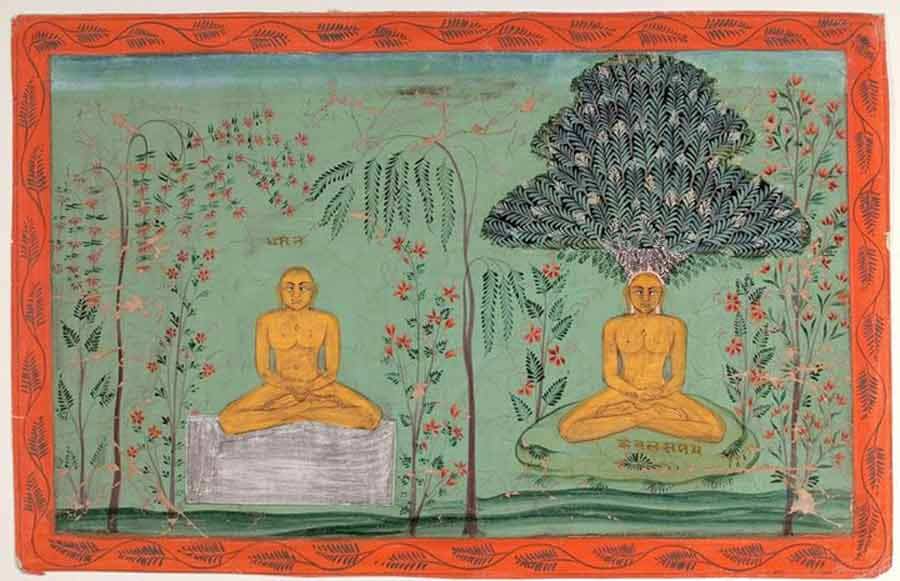
15. Patanjali’s Yoga Sutras.
16. The Heart of Yoga by TKV Desikachar.
17. Be Here Now by Ram Dass.
18. Yoga of Heart by Mark Whitwell
19. Anatomy of the Spirit by Caroline Myss
20. The Seven Spiritual Laws of Success by Dr Deepak Chopra.


